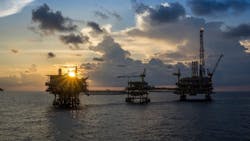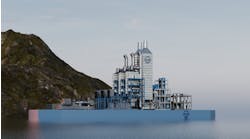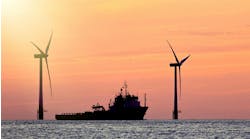Editor's note: This column first appeared in the March-April 2024 issue of Offshore magazine. Click here to view the full issue.
By David Paganie, Chief Editor
A group of operating company executives and other industry thought leaders gathered in Houston in March to discuss the transition toward sustainable energy. While the participants fully support this move, they emphasized that there is no single, linear path to achieve it. The executives also highlighted the importance of continuing to invest in the energy that populations need today and in the short term.
Many of the speakers called for a just, fair, orderly, gradual, and responsible transition that provides clear, predictable, and achievable policies and regulations. Countries and companies will progress at different paces according to their priorities and capabilities.
The UK, for example, has access to infrastructure, technologies, policies, and investments that enable it to reduce energy consumption while increasing the share of renewables in its energy mix. Conversely, some developing nations are experiencing significant economic expansion and rising demand for energy but lack the necessary financing for capital-intensive renewable energy development.
International operating companies will transform at different paces as well, based on their strategic objectives, technical capabilities, financial resources, and access to markets.
Meanwhile, fossil fuel’s share of total primary demand is expected to remain between 63% and 77% in 2030, versus 80% in 2022, according to a recent study by International Energy Forum (IEF). The report compares the short- and long-term energy outlooks from IEA and OPEC.
Oil demand increases between 2022 and 2030 in four of the six scenarios led by growth in non-OECD countries. And natural gas demand grows to 2030 in three of the six scenarios and is driven by non-OECD countries, according to the study. Natural gas is widely considered the “bridge fuel,” and operators are ramping up investments in FLNG and other technologies to meet the growing demand for the resource.
Policymakers and producers rely on long-range energy projections from consulting firms and intergovernmental organizations such as IEA and OPEC to help them shape their investment strategies. However, the forecasts have a wide range, and this can cause confusion and uncertainty. The IEF is working closely with these organizations to improve the transparency of their outlook methodologies.
The clear consensus from the operator executives at CERAWeek by S&P Global was that the energy transition needs to be orderly, and all energy sources and technologies are required to meet the world's growing energy needs while reducing greenhouse gas emissions. To this end, investing must continue in upstream oil and gas activity to meet current energy needs and to manage the transition.
Operators are following through with this imperative, as illustrated by the 30-plus upstream projects with resources of more than 50 MMboe that could go forward for development this year, according to a recent report by Wood Mackenzie. The total number of final investment decisions (FID) could be eight more than the 22 approved in 2023, with potential overall investments of $125 billion.
Inside this issue, the Offshore editorial team reviews a select list of the oil and gas developments offshore that are expected to receive FID this year. Among the selection parameters are the size of reserves, infrastructure scale and scope, unique milestones such as first deepwater production, and inclusion of emissions reduction technologies.




